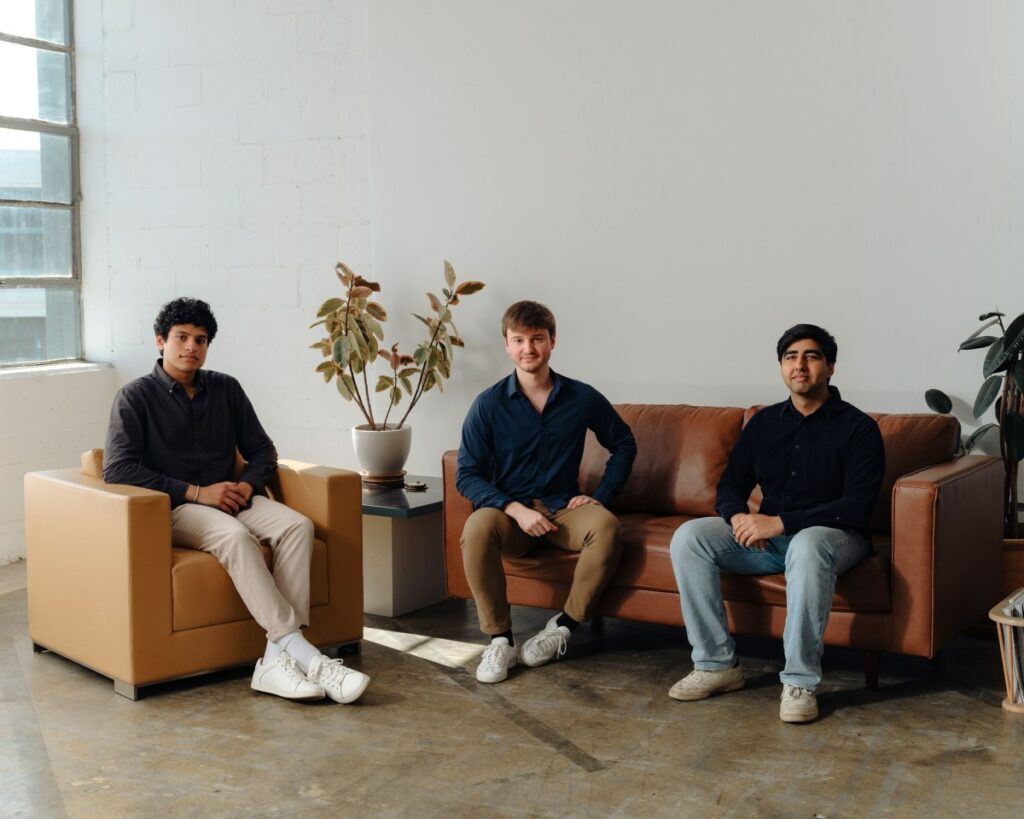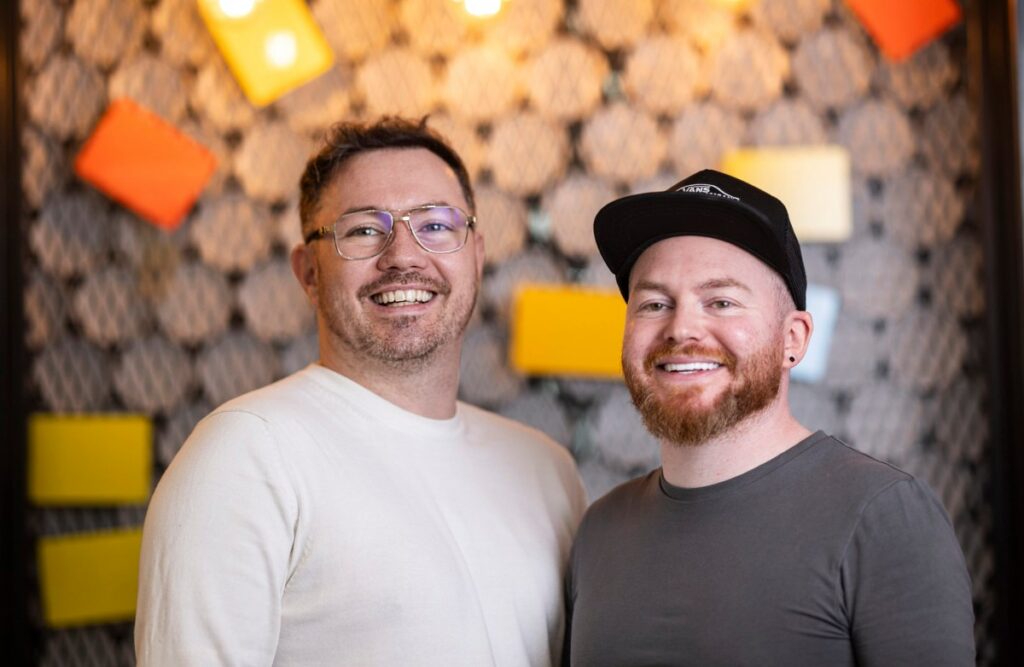Mercor, the AI recruiting startup founded by three 21-year-old Thiel Fellows, has raised $100 million in a Series B round, the company confirmed to TechCrunch.
Menlo Park-based Felicis led the round, valuing Mercor at $2 billion—eight times its previous valuation, the Wall Street Journal previously reported. Existing investors Benchmark, General Catalyst, and DST Global also participated.
General Catalyst had led the company’s $3.6 million seed round in 2023, while Benchmark backed its $32 million Series A in 2024 at a $250 million valuation.
The round makes CEO Brendan Foody, CTO Adarsh Hiremath, and COO Surya Midha, some of the youngest founders of a billion-dollar startup. The two-year-old platform, which counts Peter Thiel, Jack Dorsey, and Adam D’Angelo as backers, says the latest funding will help “accelerate its ability to match billions of people with their calling, applying human talent to its highest potential.”
Founded in 2023, Mercor uses AI to streamline hiring. Its platform automates resume screening, candidate matching, offers AI-powered interviews, and payroll management. Employers upload job descriptions, and Mercor’s system recommends the best candidates.
Mercor claims its automated system not only streamlines hiring but also removes bias from the process. That claim alleges that AI systems are less biased than humans, which hasn’t always proved to be true. Nevertheless, tech companies such as OpenAI are already using Mercor’s automated tools, which the company claims can find better human candidates than, well, other humans.
Job seekers complete a 20-minute AI interview that evaluates their skills and creates a profile. The platform then matches them with relevant full-time, part-time, or hourly roles.
“We collect performance data on candidates and use it to refine our predictions on who will perform best in the future,” Foody said.
Mercor initially focused on hiring software engineers and tech professionals in operations, content creation, product development, and design. Software engineers are still the most in-demand talent on Mercor today, Foody said. But AI labs are increasingly seeking other professionals — consultants, PhDs, bankers, doctors, and lawyers.
To meet rising demand, Mercor has expanded its talent pool, helping HR teams evaluate 468,000 applicants. India remains its largest talent source, followed by the U.S., while Europe and South America are seeing rapid growth.
Revenue skyrockets as companies embrace flexible work
This momentum has driven a sharp increase in Mercor’s revenue, which it generates by charging hourly finders’ fees to its clients.
Last September, the startup was growing 50% month-over-month, with an annual revenue run rate (calculated by multiplying its latest monthly revenue by 12) in the “tens of millions.” Maintaining that pace, it now stands at a $75 million ARR, most of which comes from AI labs. Mercor says it now works with the world’s top five AI labs including OpenAI.
Mercor’s $2 billion valuation gives it a 27x ARR multiple, a reasonable figure compared to the more inflated valuations seen today. Some investors are willing to pay up to 50 times ARR for the fastest-growing generative AI companies.
Asides from concerns about hiring bias, another debate surrounding Mercor’s technology is its potential to accelerate job displacement as AI advances.
Foody, however, argues that rather than displacing workers, Mercor is automating large parts of the economy, making workers even more valuable in the areas where they are still needed.
According to the chief executive, Mercor helps identify jobs humans should be doing in an AI-driven economy or jobs AI can’t perform — such as training AI models, managing complex decisions, or filling creative and strategic roles.
“If AI automates 90% of the economy, then humans become the bottleneck for the remaining 10%. So there’s 10x leverage on every unit of economic output that humans contribute because the rest has been automated, ” Foody explains. “That means the way people work is changing as we move toward a more fractional, gig-like work model.”
That’s why the founder believes Mercor will remain relevant in the long run, as more companies prioritize expertise over tenure and hire specialists for short-term projects instead of relying on full-time staff.
“I think work becomes more efficient through smarter job matching,” he said. “Every project should be handled by the best person for the job, not just whoever is available on staff.”
As for its own hiring, Mercor, with an average team age of 22, recently hired the former Head of Human Data Operations at OpenAI and the previous Head of Growth at Scale.


